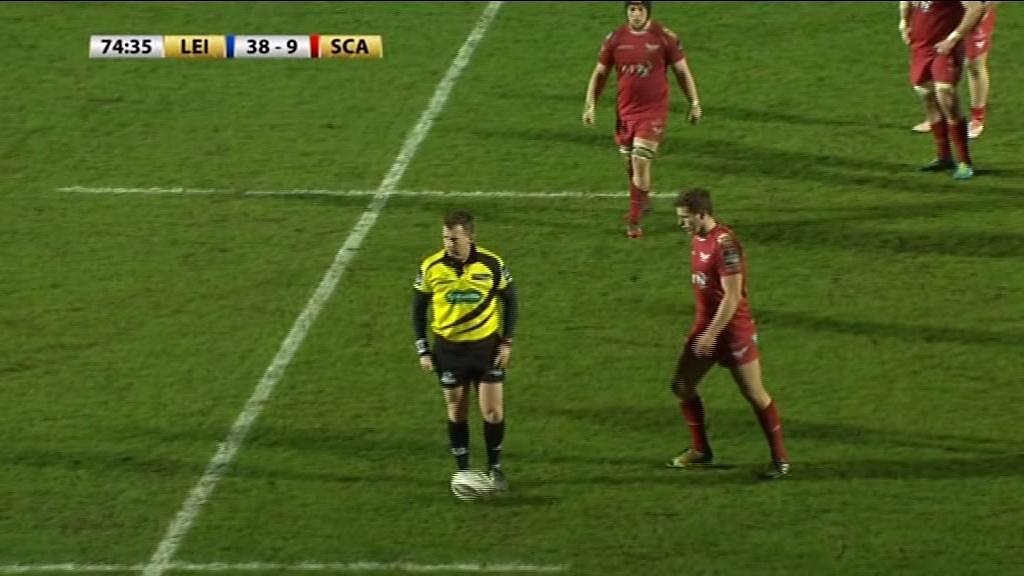International ref Nigel Owens on Christmas bulimia struggles
- Published
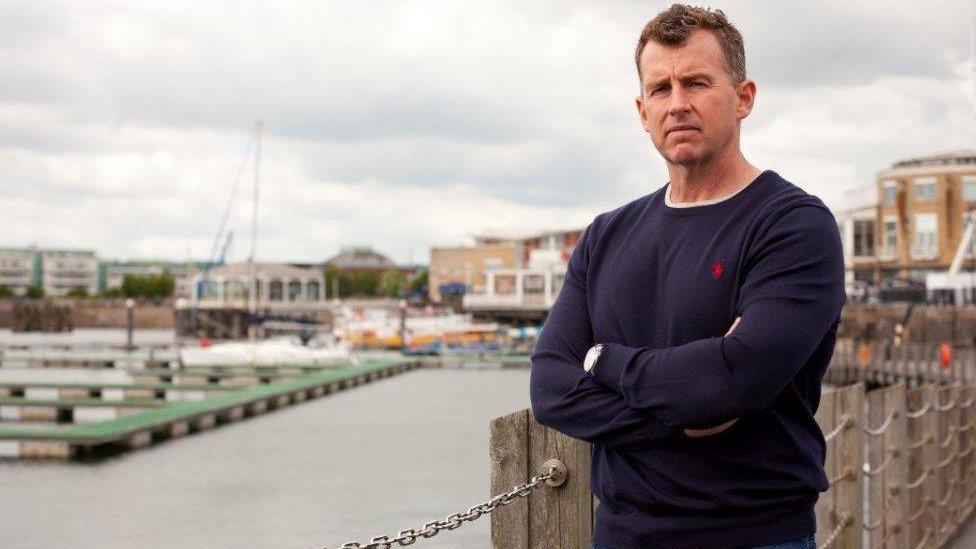
Rugby referee Nigel Owens opened up about his struggles earlier this year
International referee Nigel Owens has told how he struggled with his eating disorder over the Christmas period.
In an interview with BBC Radio Cymru, the 47-year-old described also described the night he attempted to take his own life, at the age of 26.
He was having difficulty accepting himself at the time, and was just 20 minutes away from dying.
The rugby union referee also expressed his hope that gay rugby players will discuss their sexuality.
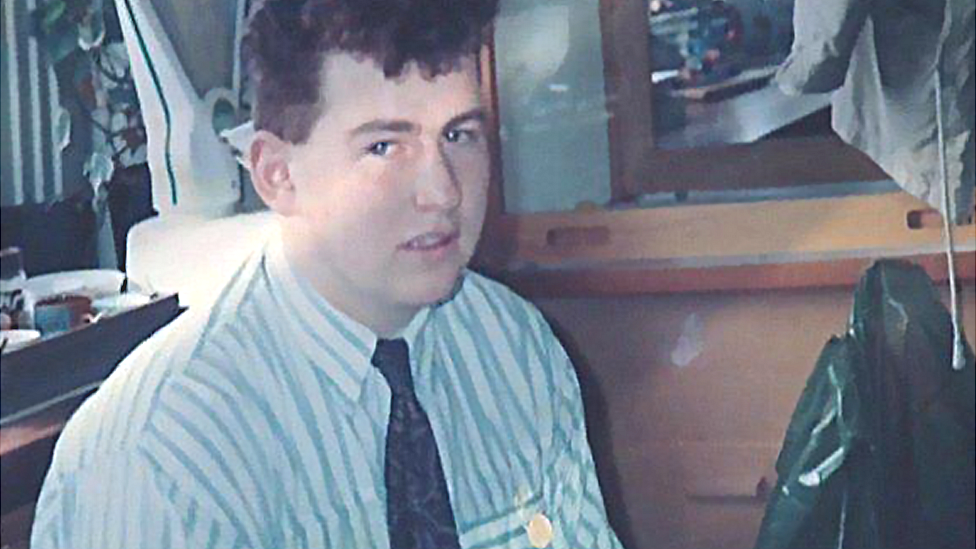
Nigel Owens was a teenager when depression over his sexuality began
Speaking on the Dewi Llywd programme on Sunday morning, he admitted he had struggled with his eating disorder bulimia nervosa over Christmas, but that it was nothing compared to his lowest time.
He opened up about his struggles earlier this year, saying that "the pressures of Christmas and the drinking and eating too much" led him to make himself ill over the festive period in 2017.
He spoke candidly about his attempted suicide and admitted his regret.
"I'll never forgive myself for what I put my mother and father through when they got up that morning and read a note, thinking that they would never see their only child again," he said.
"I'll have to live with that with the rest of life."
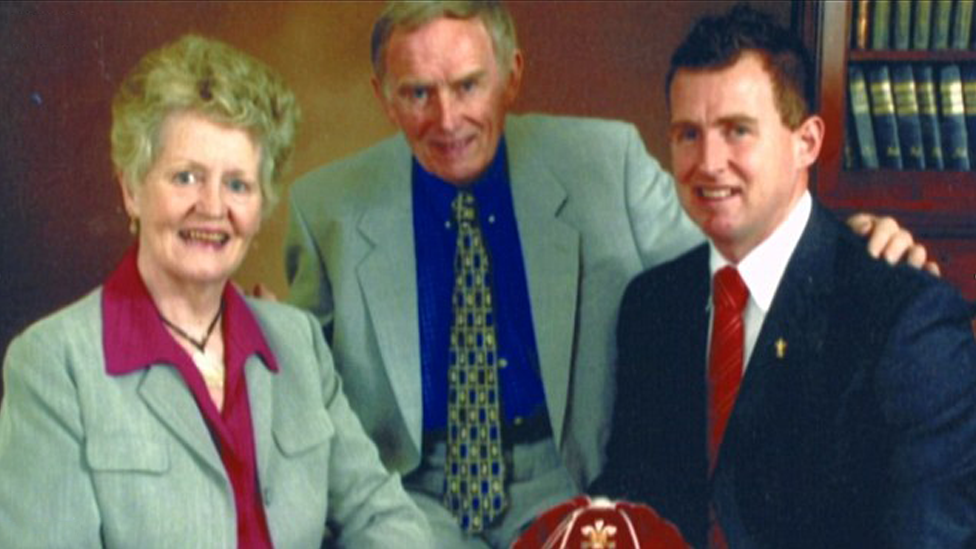
Nigel with his father and late mother, who passed away in 2009, whom he has described as "pillars of strength"
Owens had been struggling to come to terms with his sexuality at the time, and worried about the reaction of his family and the community where he lived in Mynyddcerrig, near Cross Hands in Carmarthenshire.
It was there that he started refereeing in 1987, after his sports teacher John Beynon suggested he take it up after a school game.
His first game was an under-15s match between Carmarthen and Pembrokeshire at the age of just 16.
But, when he decided to open up about his sexuality, he said the support from the community, his family and friends made it easier for him to accept himself.
"When I saw the support of the community, family and friends, the support for my mother and father through those hard times, that made it easier for me to deal with the situation," he added.
"And my mother and father, I believe, would never have come to terms with it without the community."
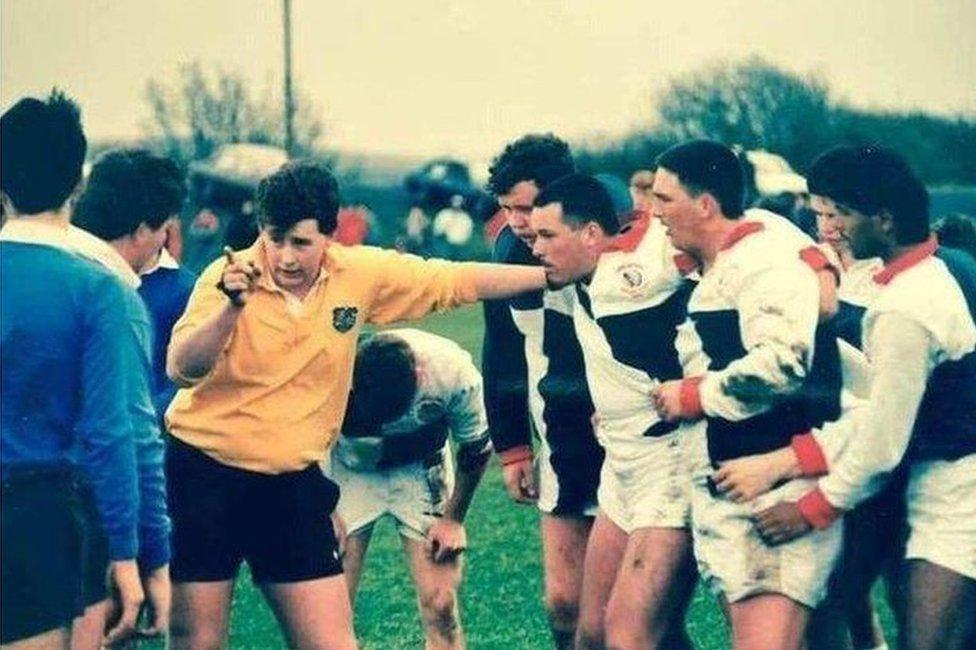
Refereeing a local game not long after first picking up the whistle
Owens also expressed his disappointment that more gay players in rugby were not discussing their sexuality, but added that it was up to the individual.
He admitted that there is still a minority within the community and the world of sport that criticise people on the basis of their sexuality, ethnicity, or the colour of their skin, but that it is getting smaller.
- Published2 February 2018
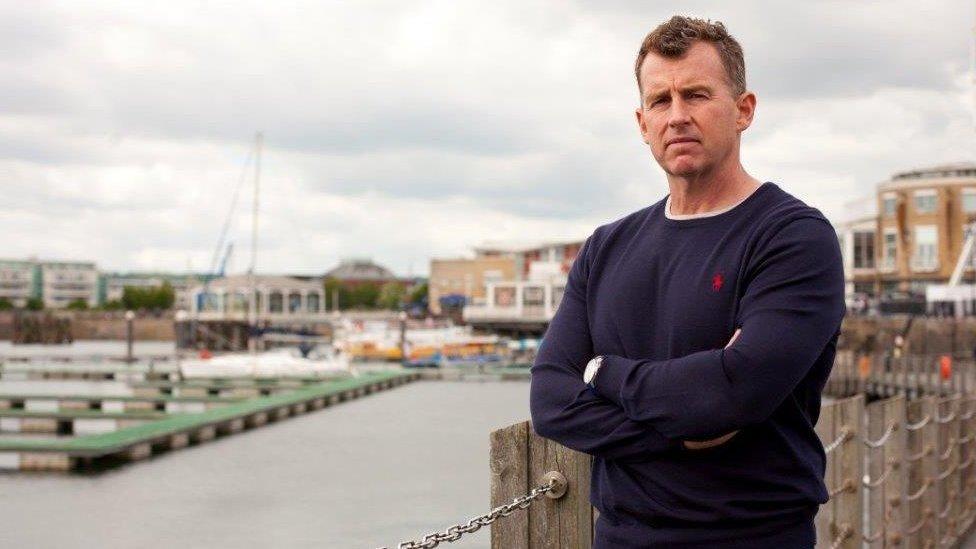
- Published23 July 2017
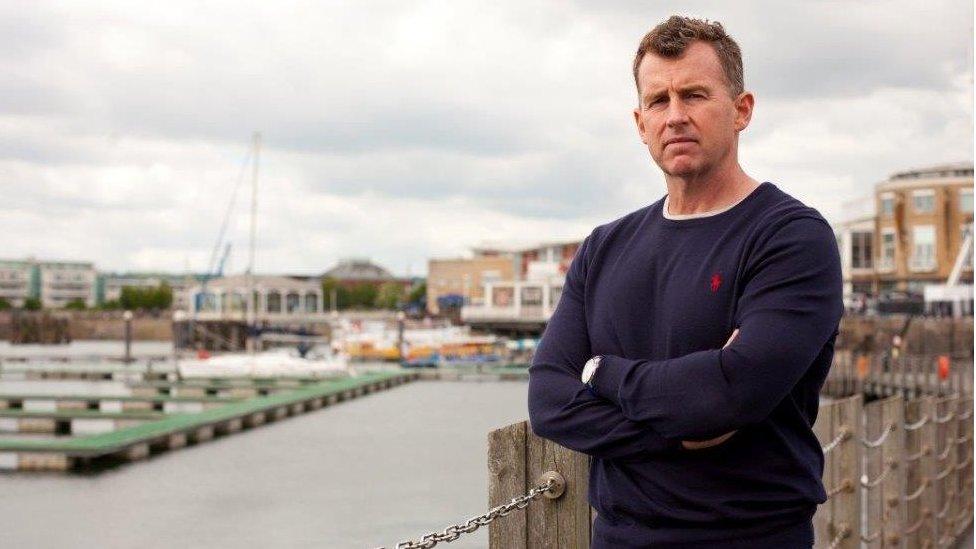
- Attribution
- Published12 May 2017
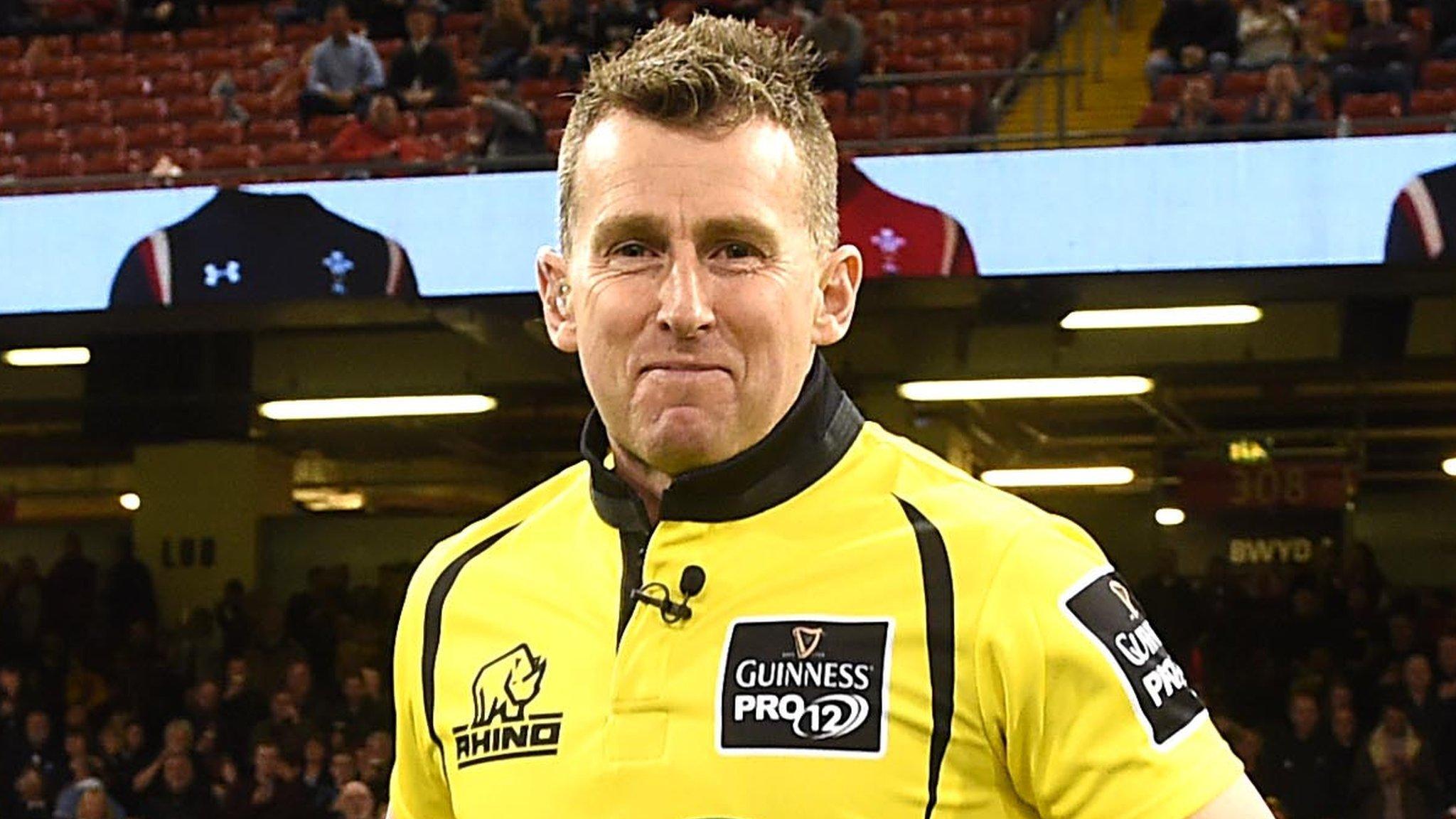
- Attribution
- Published4 March 2017
